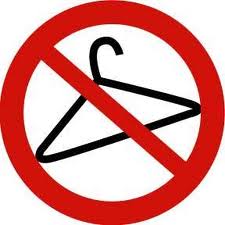Teenagers have sex, which means some have unintended pregnancies, which means some have abortions.
Is your preference that parents be involved when a minor wants to have an abortion to end an unwanted pregnancy?
You might be surprised to know how many minors in that situation desperately wish they could involve a parent in that decision. The judicial bypass procedure that allows a minor to seek permission from the court to get an abortion without parental consent exists because for some, consent is either impossible to obtain or dangerous to seek.
In 2012, there were 68,298 abortion performed in Texas. Only 2.7% of those abortions, or approximately 1,844, were sought by minors. Of that small number, only a few hundred teenagers sought a judicial bypass.
It is rare for a teenager to seek an abortion, and even more rare for a teen to need to access the judicial bypass process, but when they do, it’s for a good reason. According to Jane’s Due Process:
- In 2013, more than half of the teenagers who obtained a judicial bypass through Jane’s Due Process were abused at home or feared they would be kicked out of their home for being pregnant.
- In 2014, 39 percent of the teenagers who were assisted by Jane’s Due Process did not live with a parent because of the parent’s death, incarceration, deportation, or abandonment.
The bypass procedure is intended to help minors obtain constitutionally protected abortion services, not slow down the process. The U.S. Supreme Court affirmed this in Bellotti v. Baird. Allow me to repeat. Access to an expeditious and reasonable bypass procedure is the law of the land.
Rep. King’s bill, HB 723, is intended not only to slow down the process, but also to make the process nearly impossible to complete, setting an unreasonably high barrier that, if it became law, would be overturned by the Supreme Court.
Rep. King’s bill does not make the medical process of getting an abortion any safer. Teens who cannot get consent, and cannot get a bypass, are put in a truly dangerous and desperate place with nowhere to turn but internet pharmacies or illegal, unregulated, unlicensed clinics.
These teens are already incredibly vulnerable. They are either alone without a parent or other adult who is legally qualified to help them, or trapped with one who is abusive. We owe it to these young people to speak out in opposition to HB 723, and we owe it to our system of constitutional democracy to protect rights when they are under constant attack.
Join us at the capitol in Austin [today] to register as opposed to this bill, or to testify against it. If you can’t go to Austin, you can call committee members to ask them to oppose it. Click over to yesterday’s blog post information on where to go in Austin, or the list of whom to call from home. It is at the end of the post.
There hasn’t been a whole lot of focus on abortion this session, partly because tax cuts and assaults on local control have been on the front burner, and partly because after last session there’s not a whole lot left to do short of a full-on ban to restrict access to abortion any further. This is one of those places, and frankly I’m a bit surprised it hadn’t come up before now. Like the sonogram and TRAP bills from prior sessions, it does nothing to make anyone safer but does a lot to make people more vulnerable, all while wrapped up in deceptively reasonable-sounding rhetoric. The calendar is going to be our best friend on this one, so please do what you can to make your voice heard and maybe make the legislators that would otherwise be hellbent on this pause for a moment and think about it. Thanks.


This is one of those bills that completely destroys the charade some Rs like to keep up about their restrictions being about “safety.” Their one and only goal is ending access to safe abortion services in Texas, full stop, and they are willing to sacrifice teenagers as part of some sick political game.